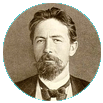Translation is at the root of performance: life to theater, page to stage, word to movement, poem to song – all are modes of translation. Most often we think of translating one language to another, and it is desirable for this translation to be seamless and unnoticed. "Good" translation gives the illusion that all is commutable, a comfortable flow, from one culture to another – like travelling Business class. The opposite is often true: translation is painful, wrenching, an impossible dare-devil leap to bridge a gap. But this is where the most exciting, jagged, dramatic aspects of translation occur. In cross cultural work the bumps and obstacles in understanding lead to the biggest discoveries. Our common humanity in the end trumps all, but we are vastly different; it is from those differences that we learn about ourselves and others. So engaging in modes of translation that allow those gaps and differences to emerge on stage is very dramatic and exciting, for an audience as well as performers.
In the height of US-Soviet tensions, I created a two-year bilingual exchange with Russian and American actors, directors, and playwrights working on two new plays together at the O'Neill Theater Center and a playwrights' conference modeled after the O'Neill we helped establish on the Volga River in Shelykova. What emerged was an idea/practice, I called LIVING TRANSLATION and while I've never exactly repeated the experience, it has informed much of the way I approach working with language on stage. Working with multiple languages and translated texts, you are always doing a dance between the miracle of comprehension and the great crevasse of misunderstanding, the impossibility of translating fully any word or thought from one language to another. I love being amid this tension and allowing audiences to experience the thrill of this human drama by aligning it with the story of the play. So scenes can be played in multiple languages, repeated, a character can have two heads one speaking Russian on English, as long as it elucidates the essence of the play. That is the fun of living translation, when you can put the act of translating on stage and let the audience in on the process to the extent that they sometimes feel like they can "understand" Japanese or Russian as it is spoken.
Even written translations of plays benefit from being worked on aloud. American playwright, Sarah Ruhl, and I drank countless cups of tea as we spoke and pondered every sentence of Chekhov's 3 Sisters. I remember going to an abandoned apartment on the outskirts of Moscow late one night to meet with Russian playwright, Liudmila Petrushevskaya, who read aloud and gave me the entomology of practically every word of slang in her play Cinzano. While impossible to translate into English, I learned how she viewed language itself as a repository of a truthful history of her country, and that influenced how I translated the play.
 |
|
THE MERCHANT OF VENICE Commissioned by Oregon Shakespeare Festival as part of the Hitz Shakespeare translation project Play On! First public reading LOCAL Theater Company New Play Lab Boulder, CO March 2017. For more info about Play On! & upcoming readings: www.playonshakespeare.org. Also, check out this podcast conversation and Folger blog with dramaturg Julie Felise Dubiner about the translation process. |
| |
|
|
 |
|
3 SISTERS by Anton Chekhov with Sarah Ruhl, commissioned for production at Cincinnati Repertory Company, John Doyle director, 2010. Also Yale Rep, Berkeley Rep, Les Waters director, 2011. |
| |
|
|
 |
|
UNCLE VANYA by Anton Chekhov for The Maly Drama Theatre of St Petersburg's production at BAM, 2010.
|
| |
|
|
 |
|
LIFE OR FATE by V. Grossman; Lev Dodin adaptation for The Maly Drama Theatre of St. Petersburg production, Lincoln Center Festival (other English speaking venues in Australia, UK), 2009. |
| |
|
|
 |
|
THE CASUALTY by Alexander Galin (screenplay) Filmed New York-St. Petersburg, 2008, released in Russia, 2009. |
| |
|
|
 |
|
THE BRIDES OF CHERNOBYL by Vladimir Gubaryev
The O'Neill Theater Center, 1995, with Russian-American cast. |
| |
|
|
 |
|
"Nostalgia for Soviet Theatre" by M. Shvydkoi, Performing Arts Journal, Winter 1993. |
| |
|
|
 |
|
"The Last Decade: Stanislavsky and Stalinism" by A. Smeliansky, Theater, Spring, 1991. |
| |
|
|
 |
|
FIRST SNOW by Oleg Antonov Commissioned by The Empty Space Theatre for their series of readings, Soviet Theatre: New Translations, a part of The Goodwill Arts Festival, July 1990. Presented as a bilingual workshop in "living translation" at The O'Neill Theater Center, Waterford, Connecticut and Soho Rep, New York. |
| |
|
|
 |
|
CINZANO by Liudmila Petrushevskaya Commissioned by Actors Theatre of Louisville for their Classics in Context Festival 1989, focusing on The Moscow Art Theater. Published in monograph and read simultaneously to accompany Russian performances by the Studio Chelovek from Moscow. Also published in Theater, Fall 1989. |
| |
|
|
 |
|
STARS IN THE MORNING SKY by Alexander Galin Read simultaneously to accompany the Leningrad Maly Theater's performances at the New York Festival for the Arts, June 1988. Staged in English at the Los Angeles Theatre Center with participation of playwright and translator, December 1988. Published by the Dramatic Publishing Company, with many subsequent productions in USA & Canada. |
| |
|
|
 |
|
BROTHERS AND SISTERS by Fyodor Abramov, adaptation by Lev Dodin. Co-translated with Mikhail Stronin the text of this seven hour epic performance by the Leningrad Maly Theater Company, to be read simultaneously for English speaking audiences at The Old Globe Theatre, San Diego Arts Festival: Treasures of the Soviet Union, 1989, Lincoln Center Festival, excerpts published Theater, Winter, 1989. |
| |
|
|
 |
|
BREAKFAST WITH STRANGERS by Vladlen Dozortsev
Read at the National Playwrights Conference 1987, Eugene O'Neill Theater Center. Produced by Actors Theatre of Saint Paul as part of 1987-88 season. |
| |
|
|
 |
|
LIKE A LION by Rustam Ibragimbekov Performed as a Project in Progress at Circle Repertory Company with the participation of the playwright. Sept.-Oct. 1986. Also The Eugene O'Neill Theater Center, Philadelphia Festival Theatre for New Plays. |
| |
|
|
 |
|
A PROVINCIAL HISTORY by Lali Roseba (translation in collaboration with Michael Feingold) National Playwrights Conference 1986, The Eugene O'Neill Theater Center. |
|

